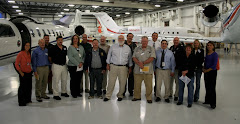
FOR IMMEDIATE RELEASE Contact: Erin Uy, euy@careertech.org
August 14, 2009 301.588.9630 (office), 301.641.9358 (mobile)
Report: Teacher shortage undermines career and technical education, potentially economic growth
SILVER SPRING, MD – The fastest growing jobs in the nation will be in career and technical education fields such as manufacturing – from aerospace to pharmaceuticals—and health care, however a shortage of qualified teachers may jeopardize the nation’s ability to prepare students for those professions, according to a recent issue brief released by the National Association of State Directors of Career and Technical Education.
However, an opportunity to boost the supply of teachers may be opening, as a growing number of displaced industry workers are making a career shift into the education system. But to capitalize on what may be a silver lining of the nation’s economic downturn, schools, policymakers and accrediting institutions must create pathways to attract, support and retain teachers, according to Teacher Shortage Undermines CTE.
Urging action, the report notes that “in order to cultivate a workforce to fill these jobs, students will require training from quality secondary and postsecondary CTE teachers – resources that are lacking across the nation due to a teacher shortage.”
The issue brief recommends:
· States adopt flexible, but rigorous standards alternative certification programs. Research has shown that there is no statistically significant difference in the academic achievement of students whose teachers took different routes to certification.
· Schools provide professional development through various funding streams – from traditional CTE funding pots through Perkins to Title II of NCLB. Also, all professional development should be comprehensive and continuous.
· Proactively recruiting teachers from industry, particularly in fields where the economy is experiencing the most growth and transformation. Industry perspective can keep the school programs fresh and relevant to economic demands.
The report highlights examples of teacher training programs and standards in Oregon, Alabama and California that may serve as models for other states. Visit http://www.careertech.org/uploaded_files/Teacher_Shortage_Undermines_CTE.pdf
NASDCTEc is the Washington D.C.-area based professional society of the state and territory agency heads responsible for career technical education. The state directors are committed to leadership and results. The association has a growing membership of over 200 members who share the state directors’ commitment to quality education at the secondary, post secondary and adult levels.



